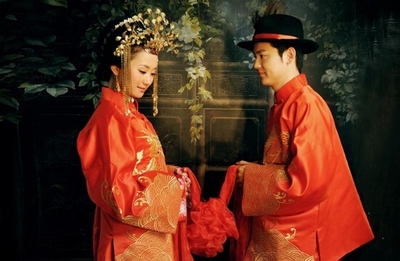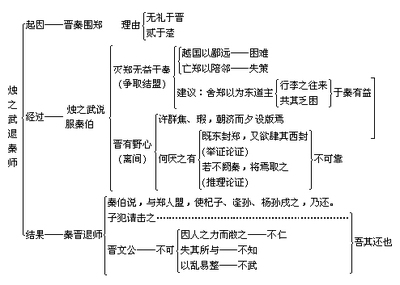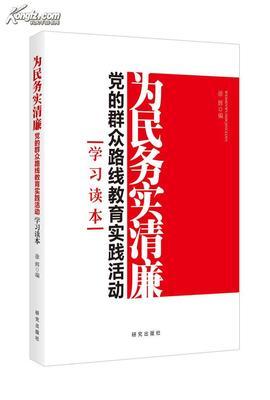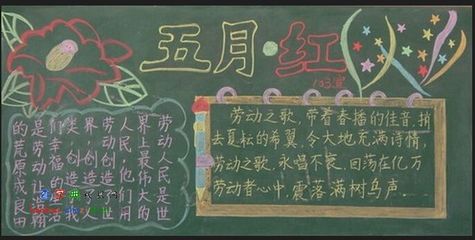New Year's eve
New Year's eve refers to the annual lunar month of the lastnight, and it is the first month end to end. "New Year's eve" ofthe "except" word is "go; easy alternating" meaning, New Year's evemeans "month poor old do", people have to welcome, have used theold so far and dividing, next year another sexually compromisingmean, is the lunar year last night. Therefore during the activitiesaround used orientation, disaster praying for the center.
除夕 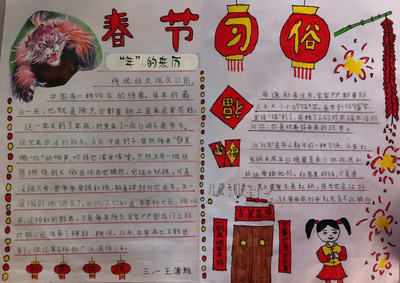
除夕是指每年农历腊月的最后一天的晚上,它与正月初一首尾相连。“除夕”中的“除”字是“去;易;交替”的意思,除夕的意思是“月穷岁尽”,人们都要除旧迎新,有旧岁至此而除,来年另换新岁的意思,是农历全年最后的一个晚上。故此期间的活动都围绕着除旧迎新,消灾祈福为中心。
The first month pay
The Spring Festival is an important activity, is to relativesand friends home and neighbors there new spring, old saycongratulations to a happy New Year. Han Chinese New Year wind, handynasty existing. Tang is a very popular, some don't afterpersonally to greet MingTie shots, usable. Han dynasty, so called"ci" card, say again "MingCi". After the Ming dynasty, many peoplein the doorway stick a red paper bags, only collect MingTie, called"door book". Now people besides follows previousbest way outside, has been a happy New Year and telephone etiquettetelegraph paid etc.
正月初一拜年
春节里的一项重要活动,是到亲朋好友家和邻居那里祝贺新春,旧称拜年。汉族拜年之风,汉代已有。唐宋之后十分盛行,有些不必亲身前往的,可用名帖投贺。东汉时称为“刺”,故名片又称“名刺”。明代之后,许多人家在门口贴一个红纸袋,专收名帖,叫“门簿”。现在人们除了沿袭以往的拜年方式外,又兴起了礼仪电报拜年和电话拜年等。
The teenager offering of wealth
The north on the lunar calendar, this day whether businessoffering huzhu shop, or the ordinary families, have held offeringmammon activities. Families of the New Year's eve connect tosacrifice a wealth. Is actually turned bought rough printsincineration settles. This day noon to eat wonton, commonly knownas "silver piece soup". Sacrifice offerings with fish and meat. OldBeijing big business, this day are swarming ritual activities,sacrifices to want to use "five" for this year, expecting to makinga fortune.
正月初二祭财神
北方在正月初二祭财神,这天无论是商贸店铺,还是普通家庭,都要举行祭财神活动。各家把除夕夜接来的财神祭祀一番。实际上是把买来的粗糙印刷品焚化了事。这天中午要吃馄饨,俗称“元宝汤”。祭祀的供品用鱼和羊肉。老北京的大商号,这天均大举祭祀活动,祭品要用“五大供”,祈望今年要发大财。
 爱华网
爱华网